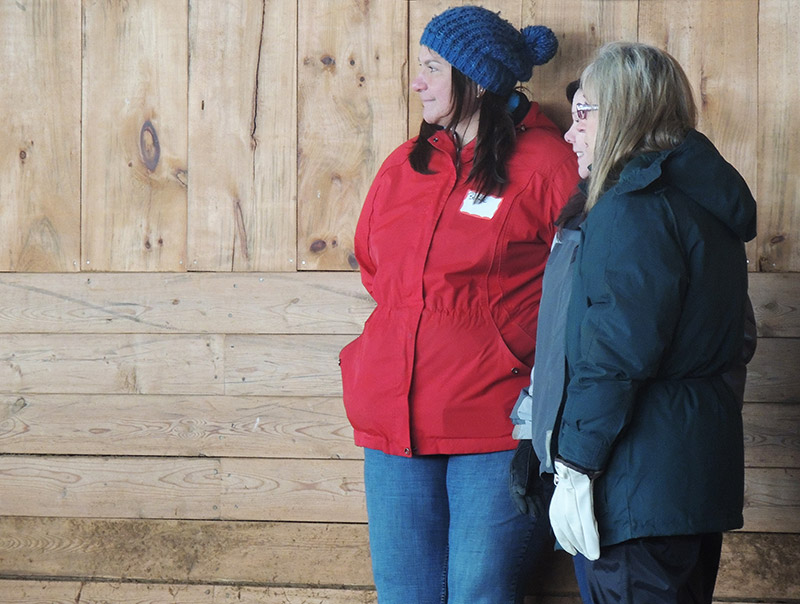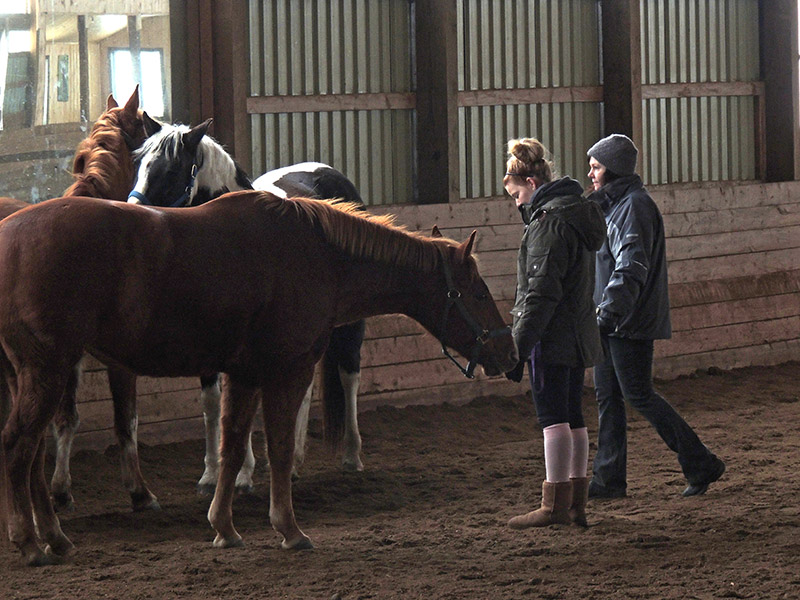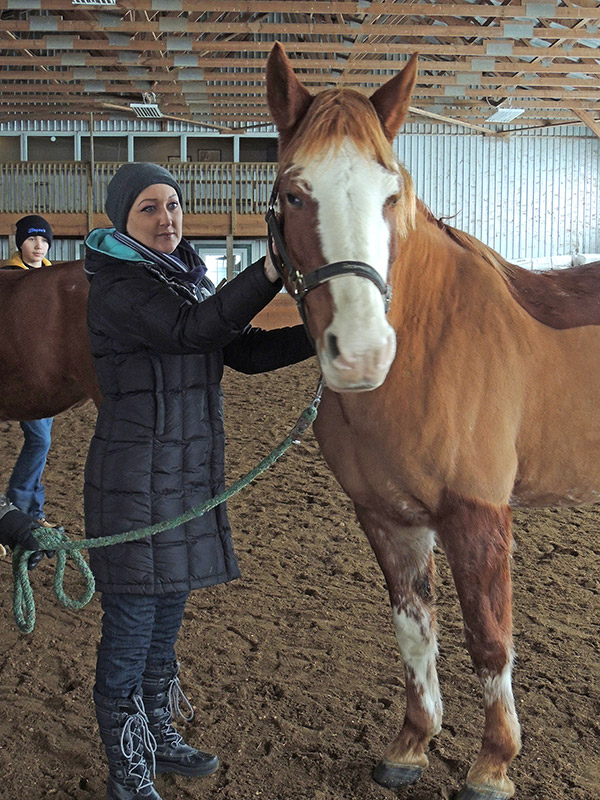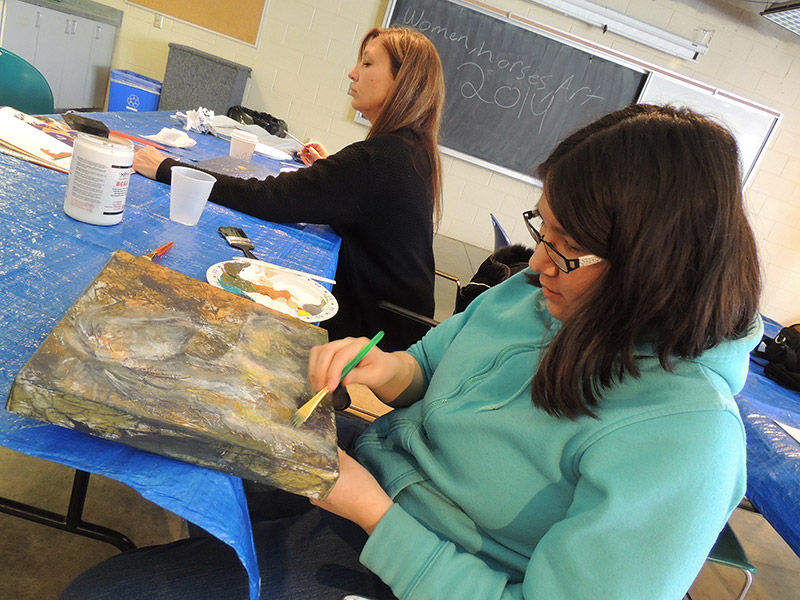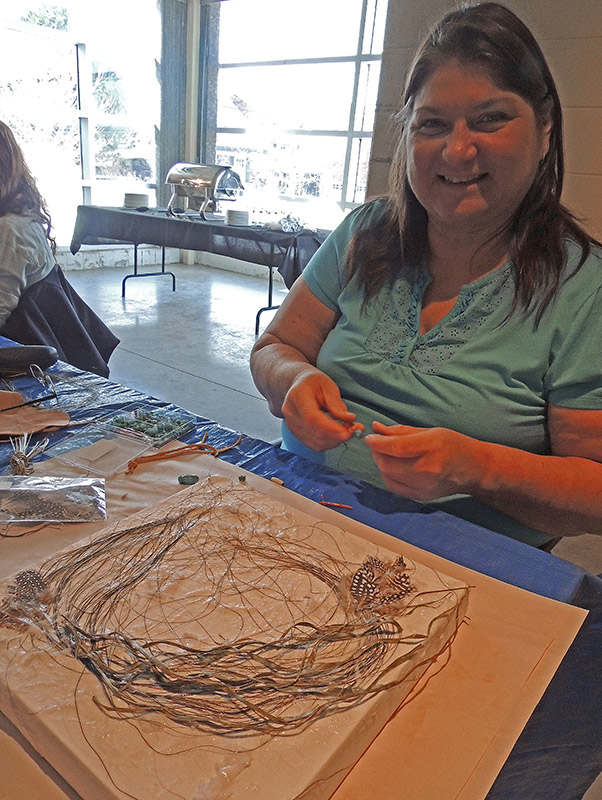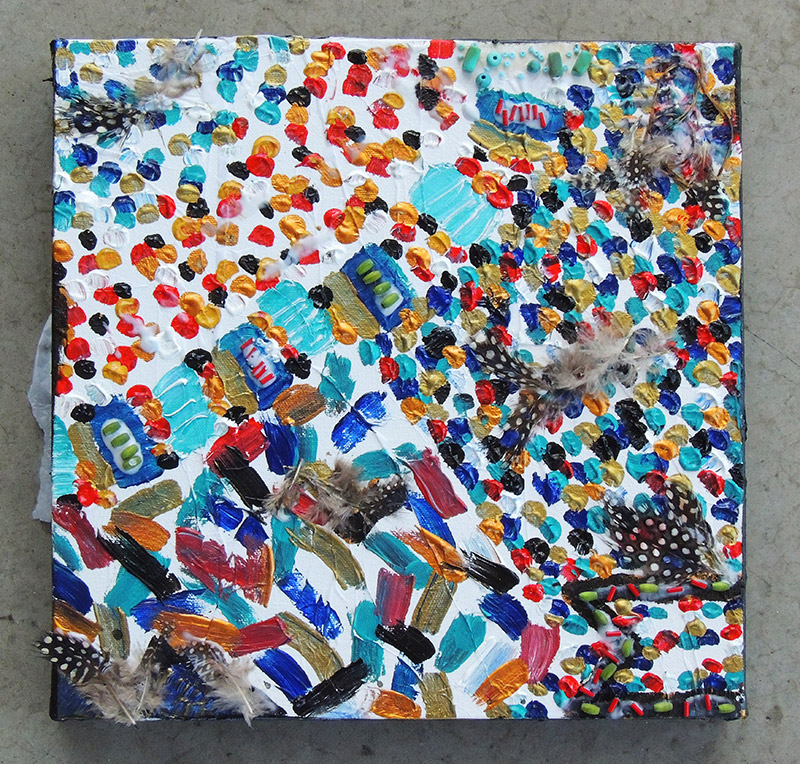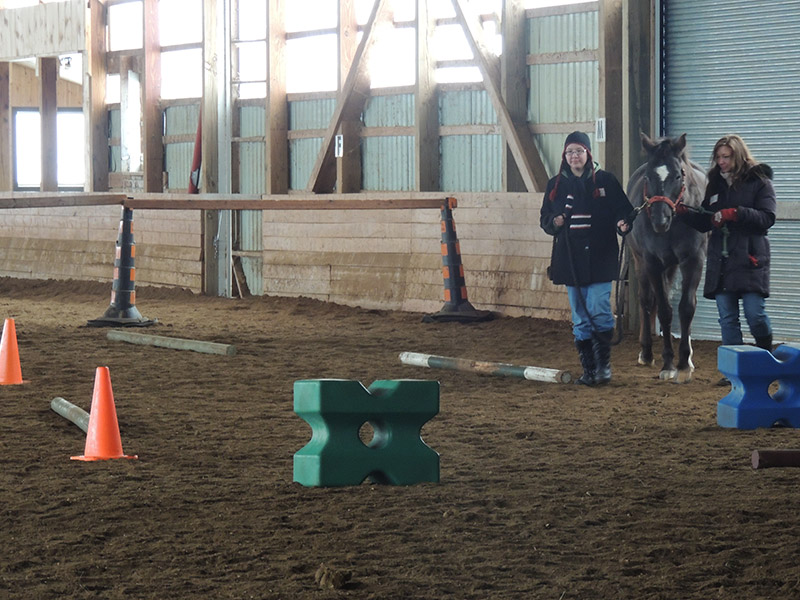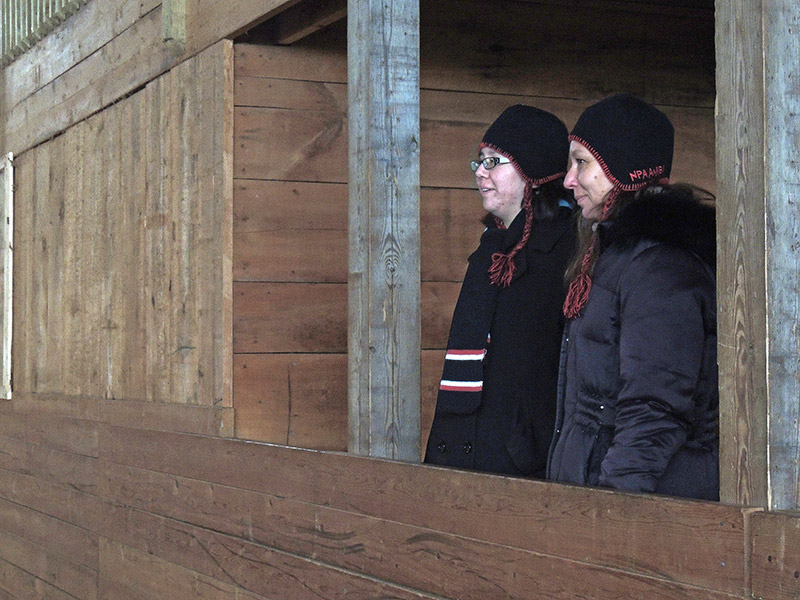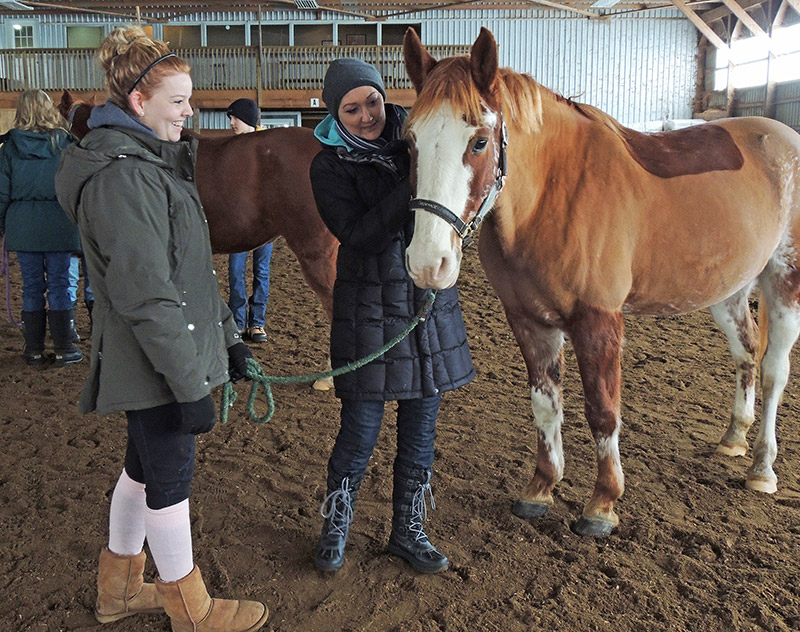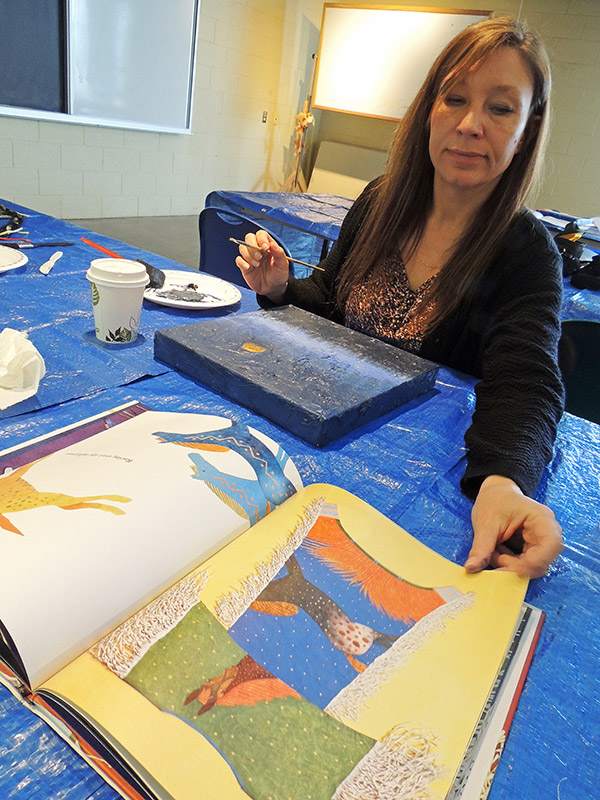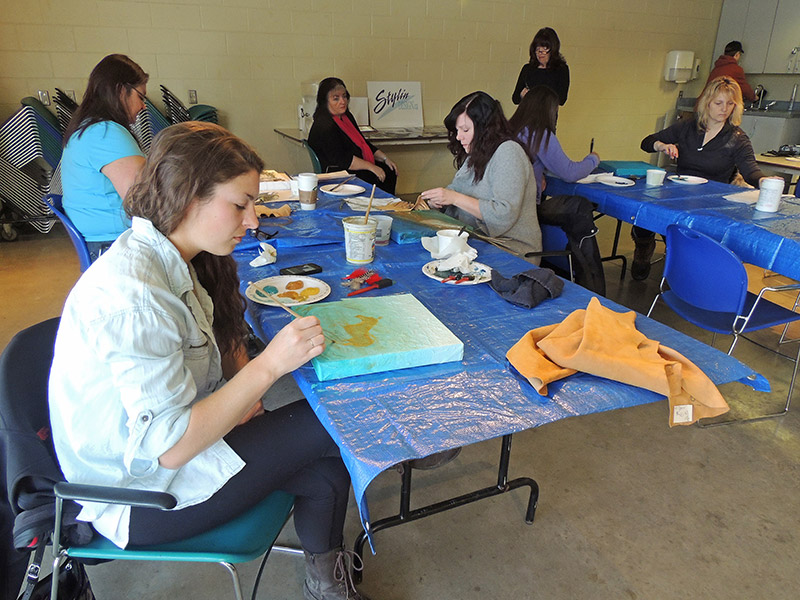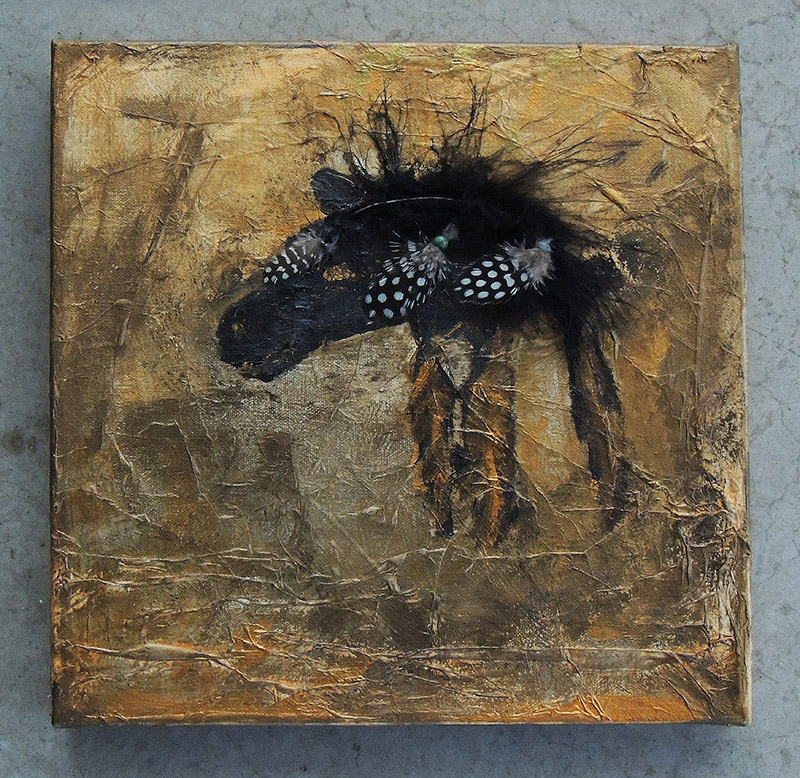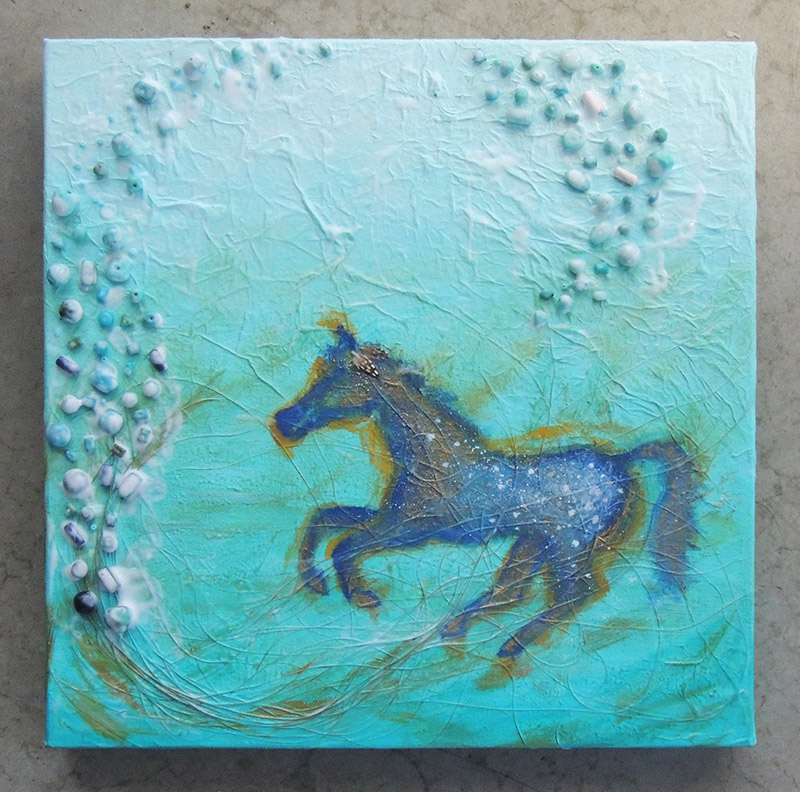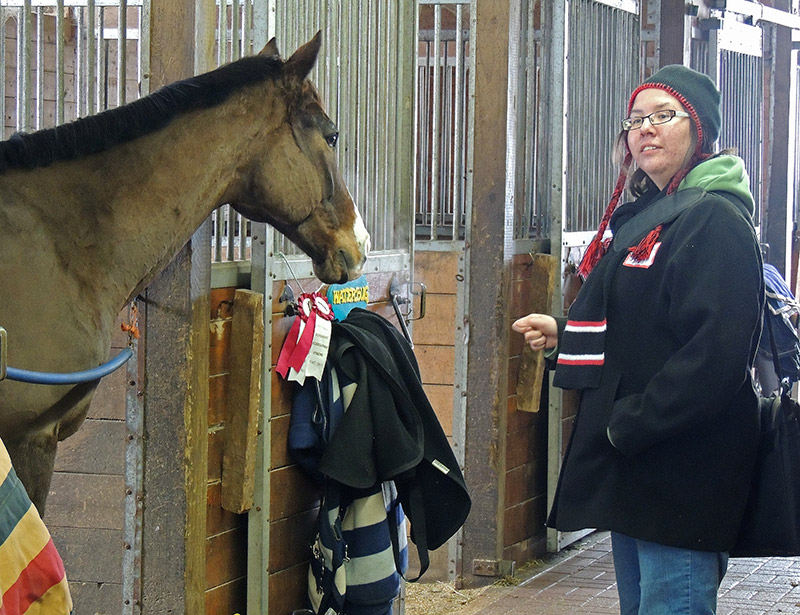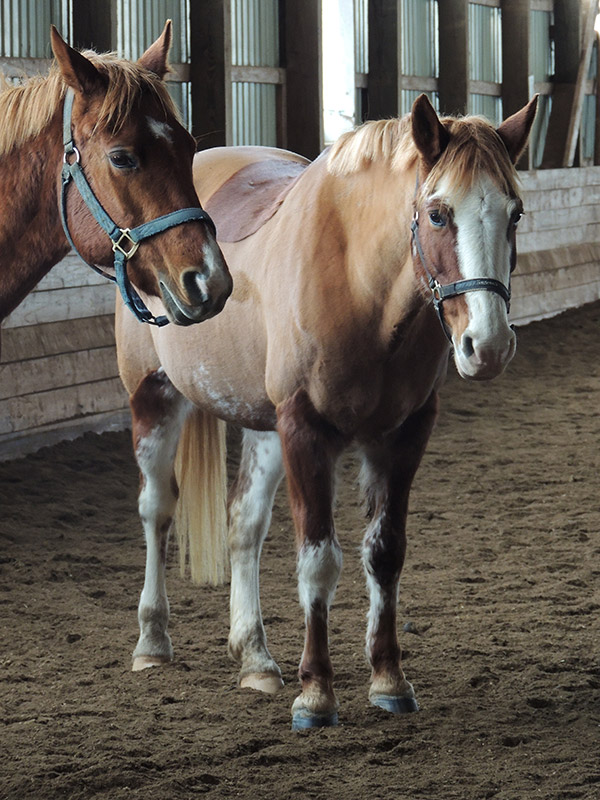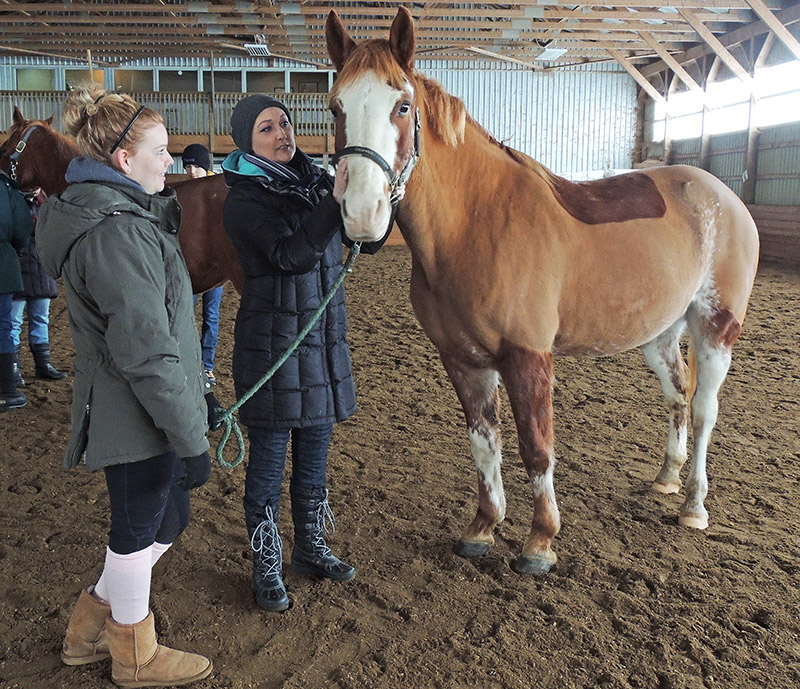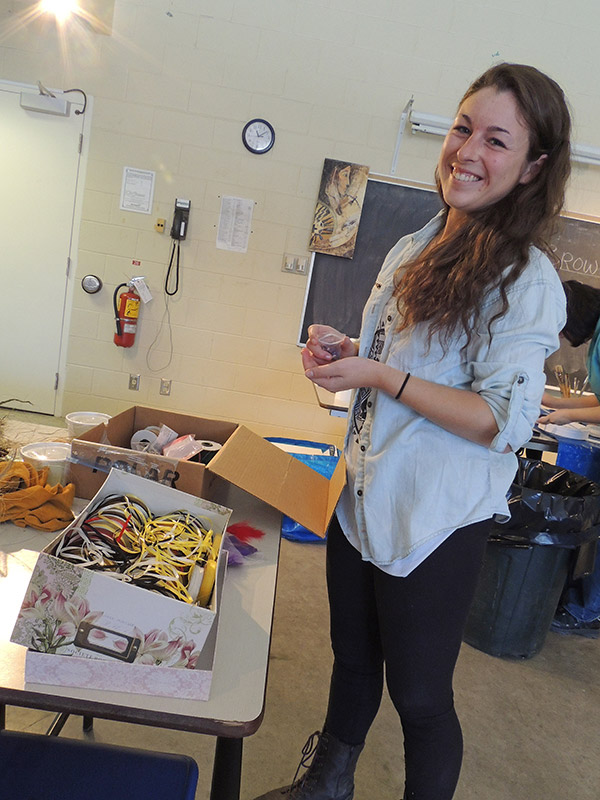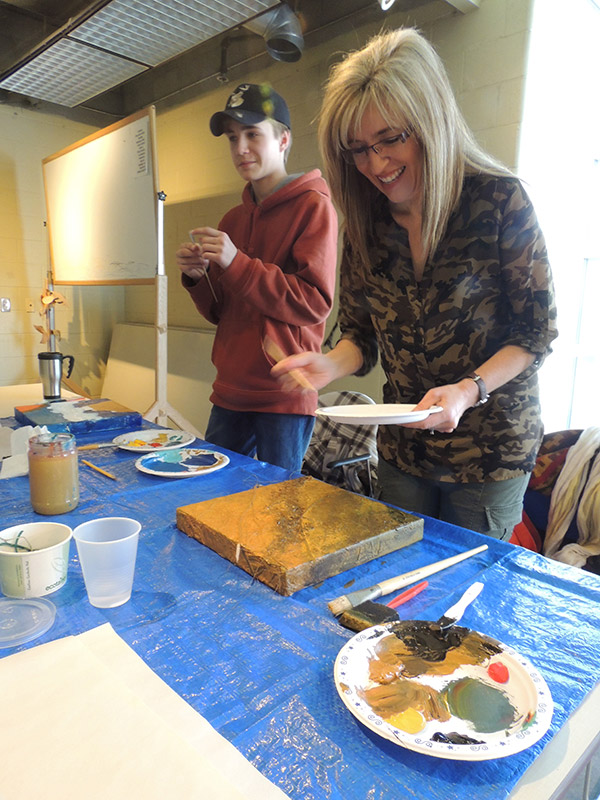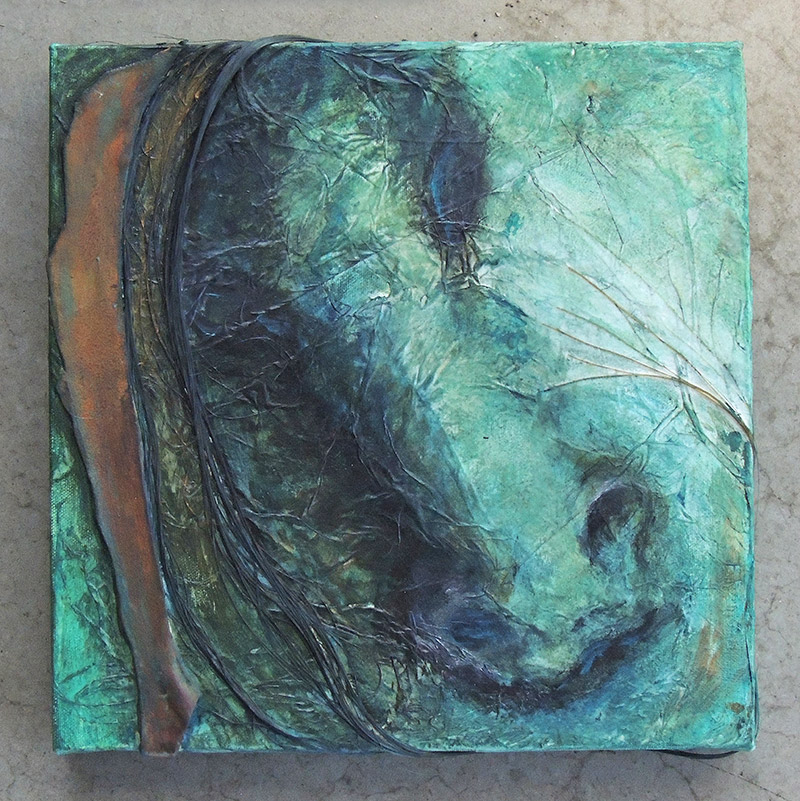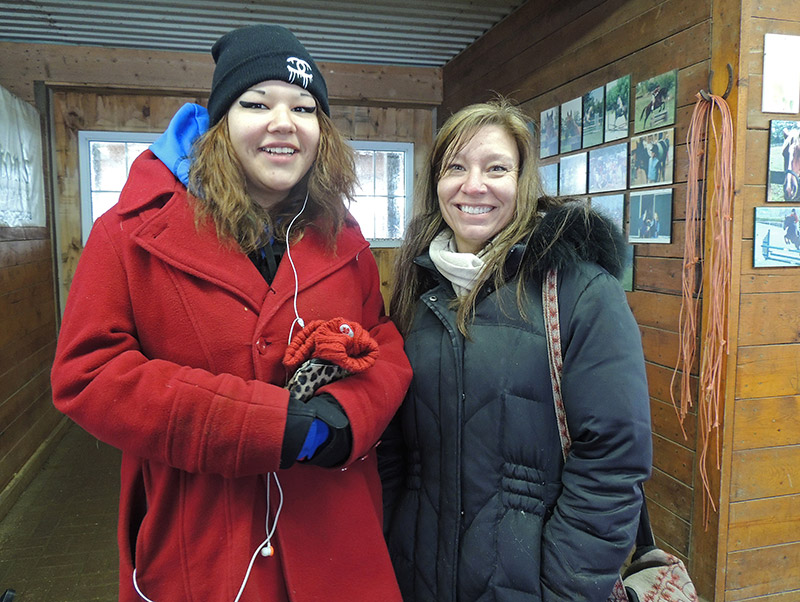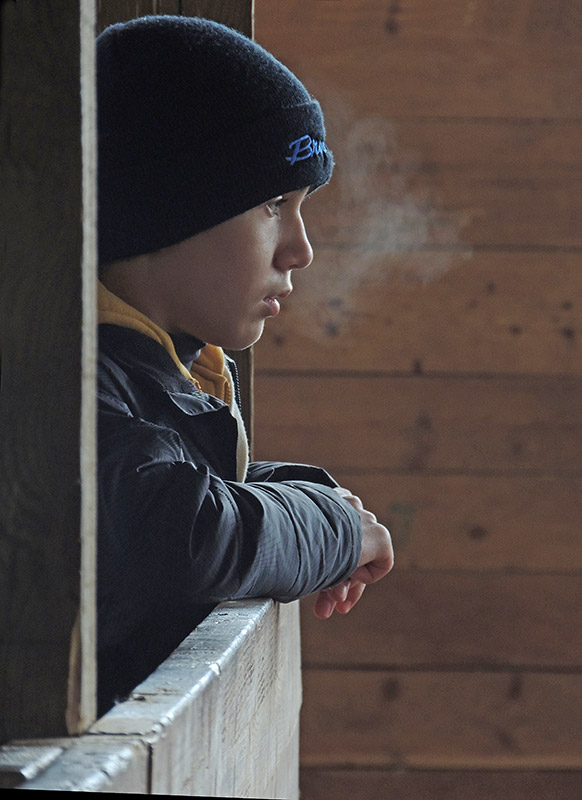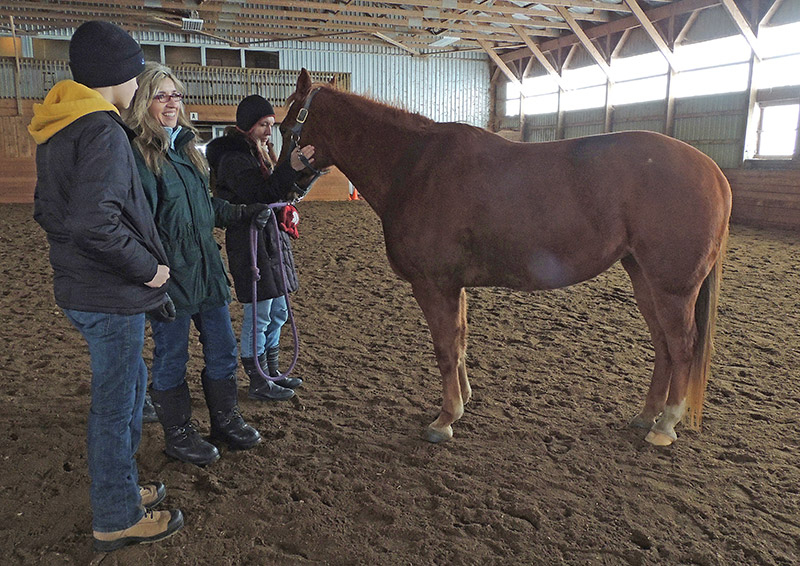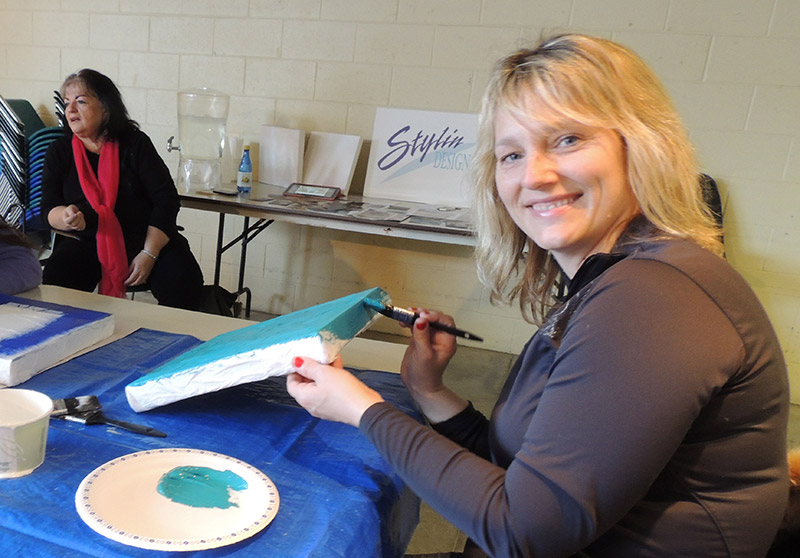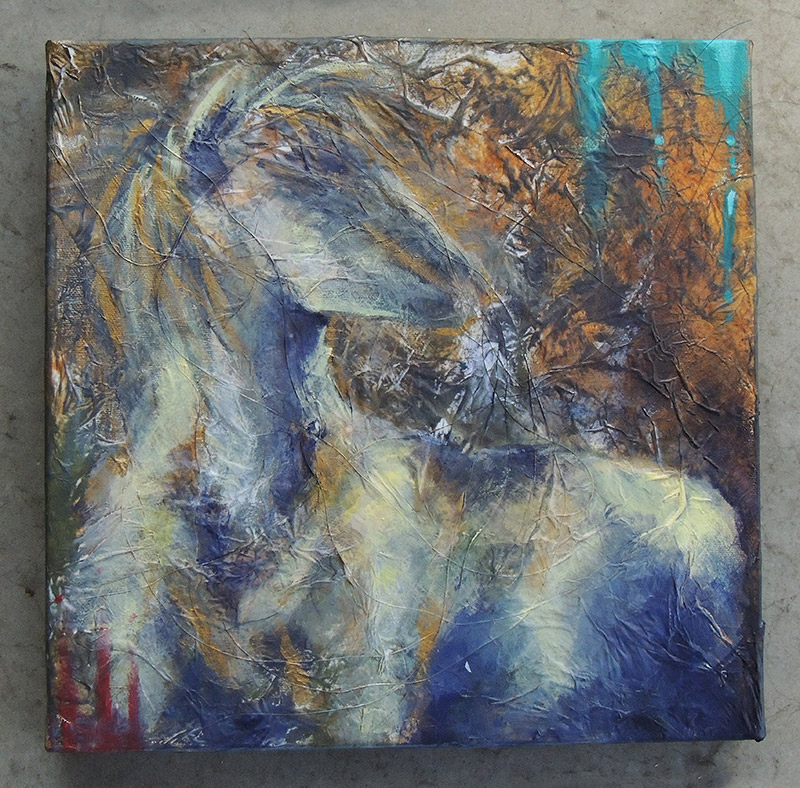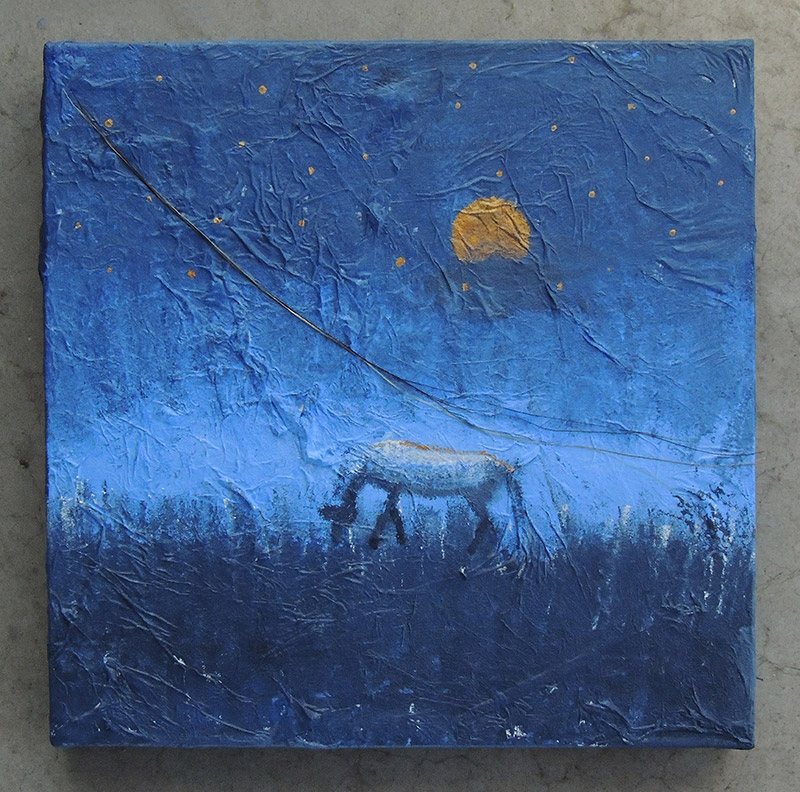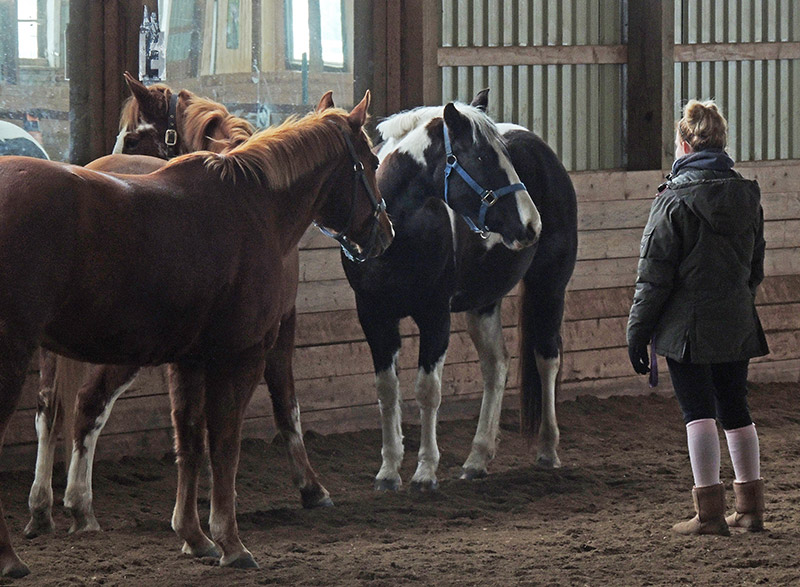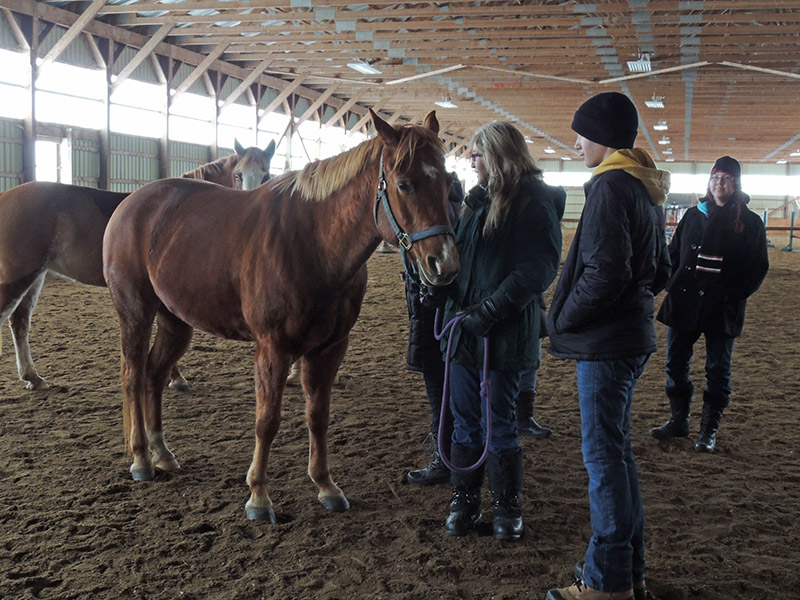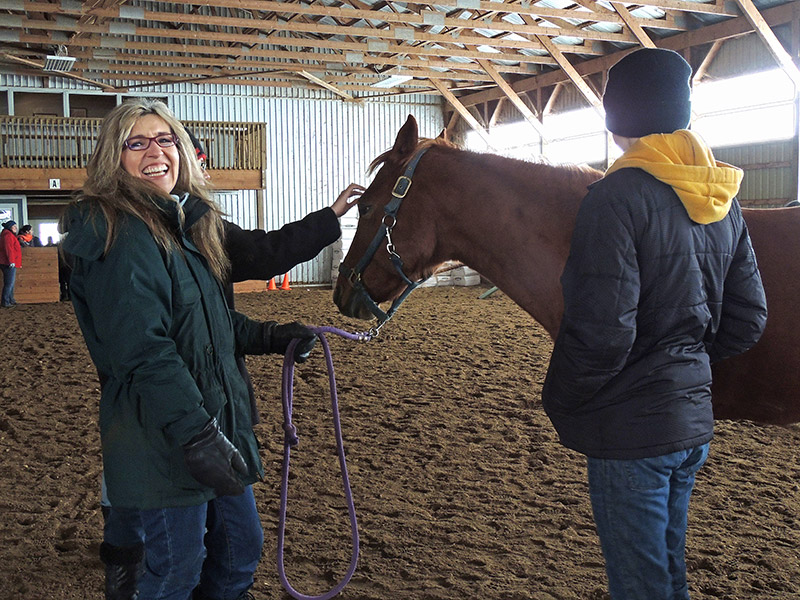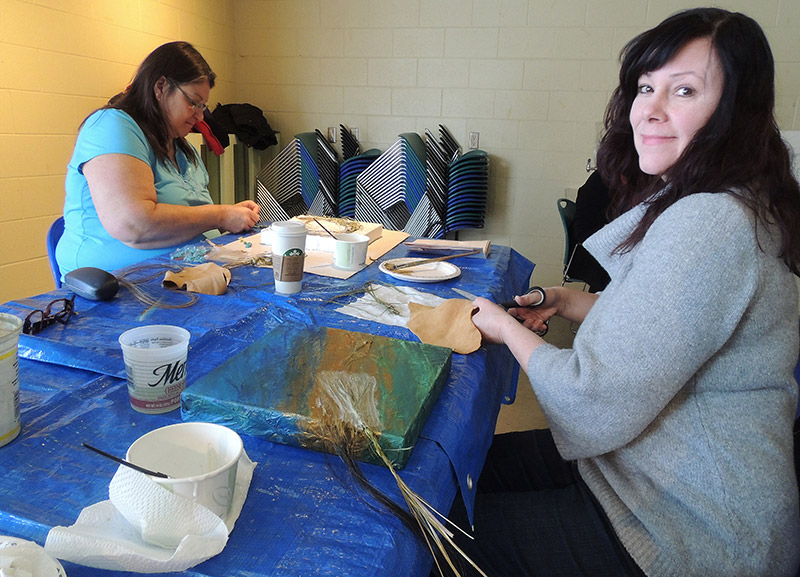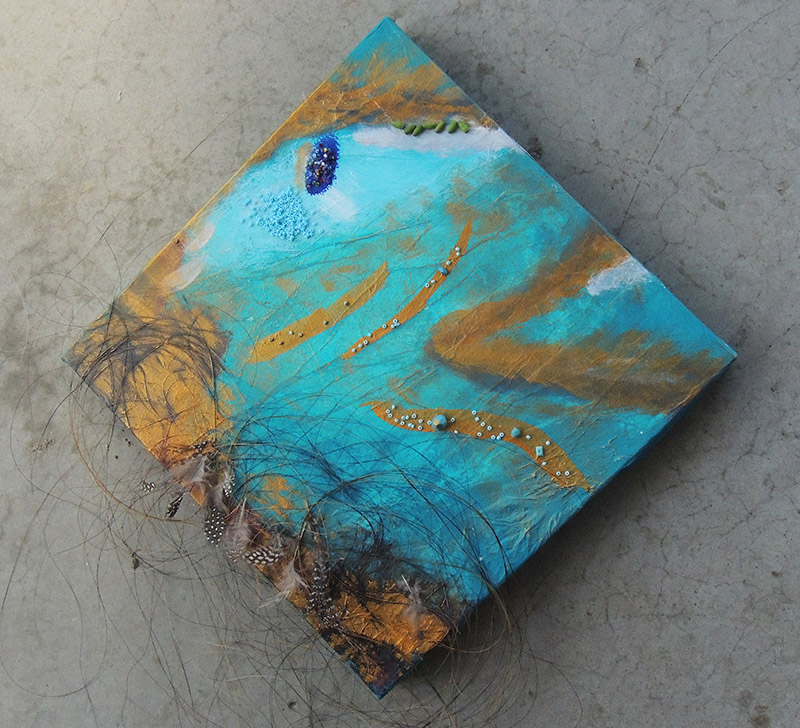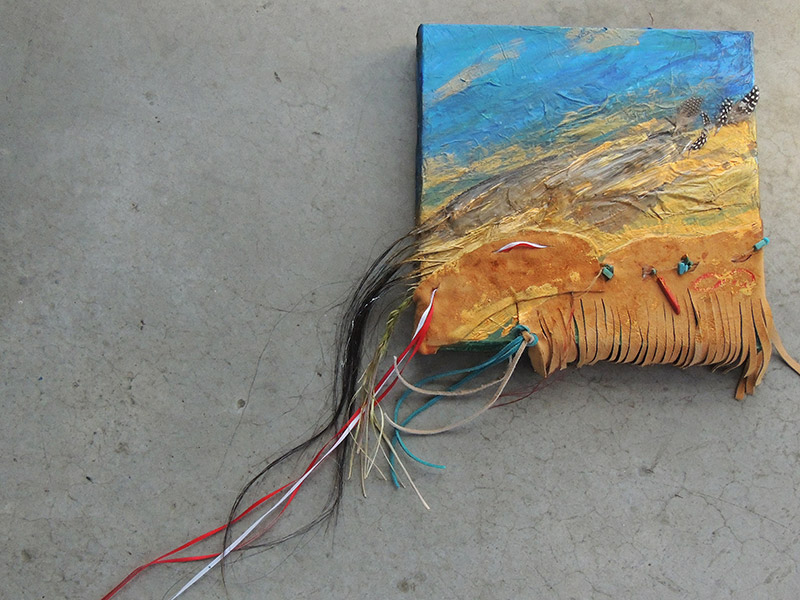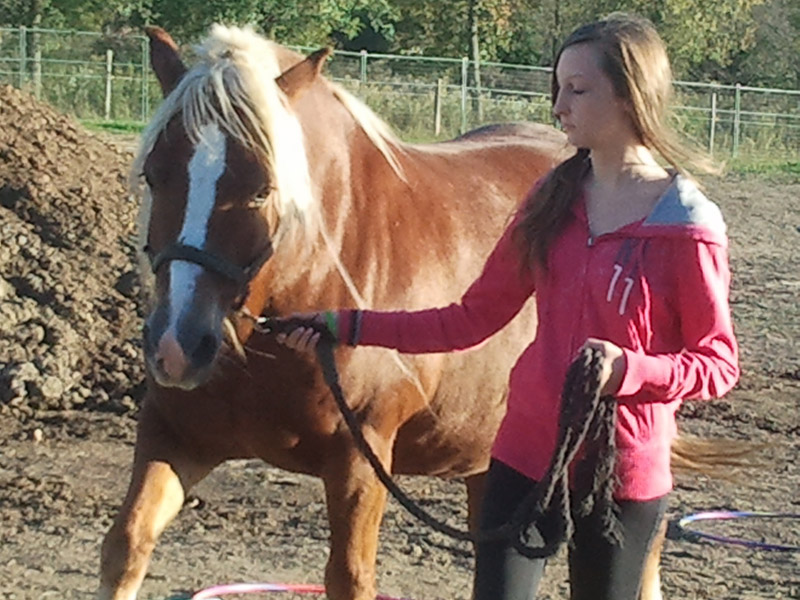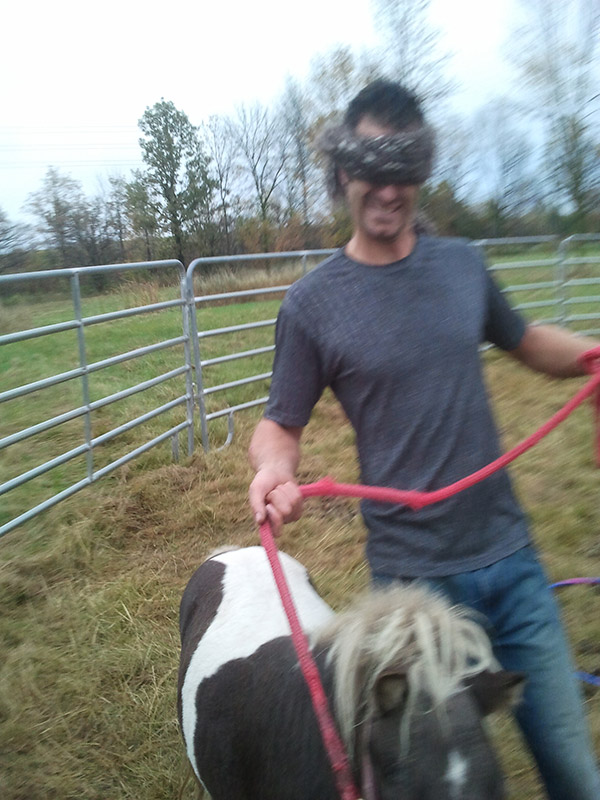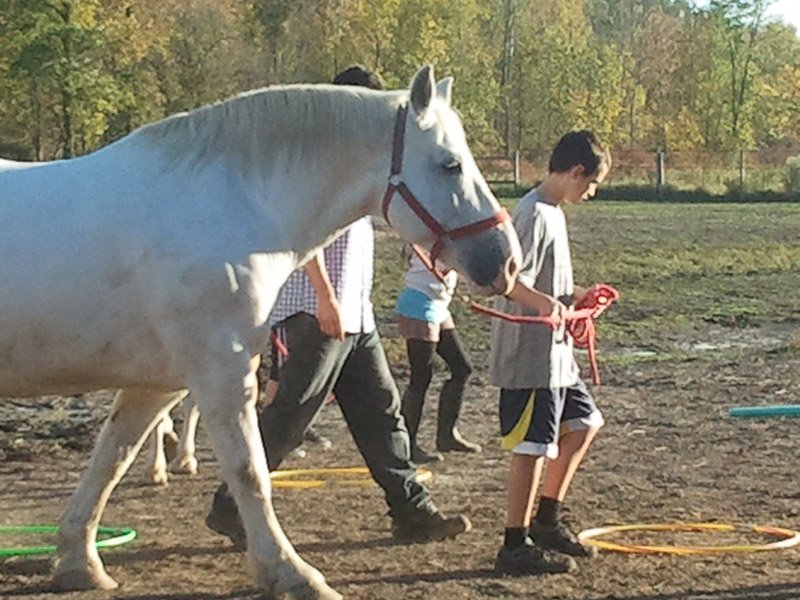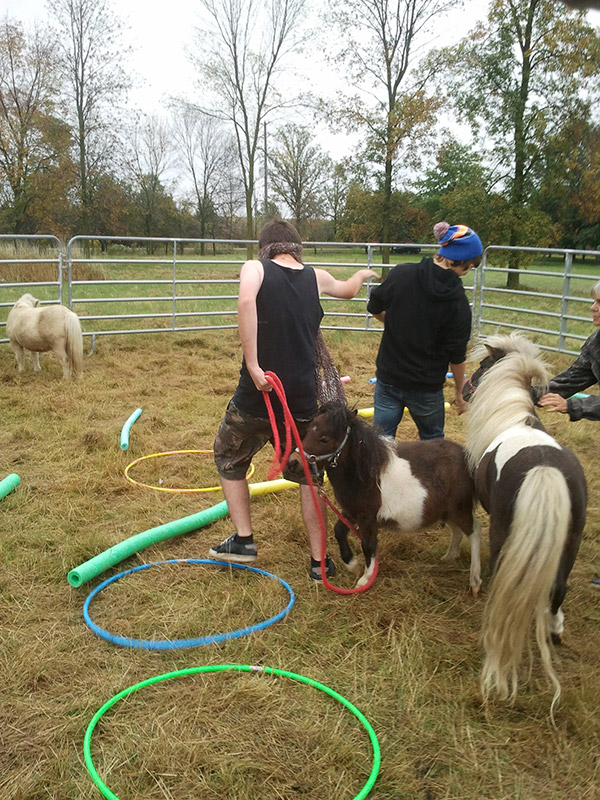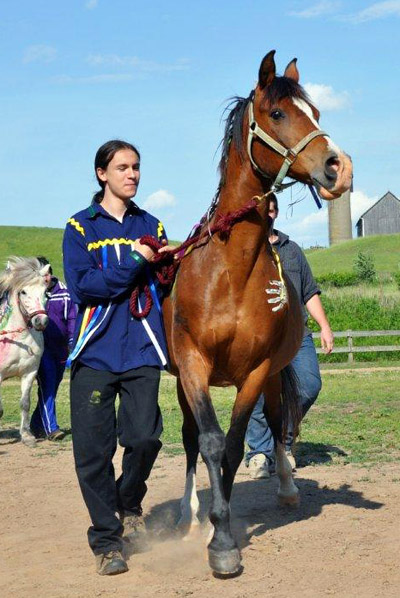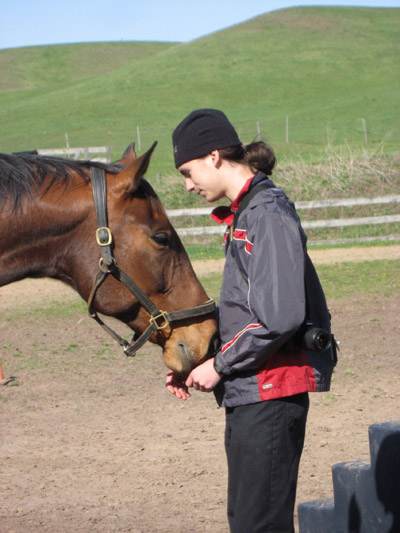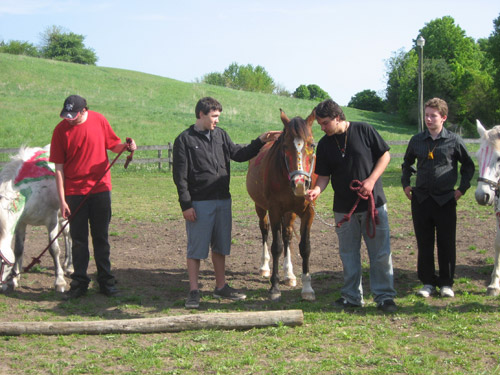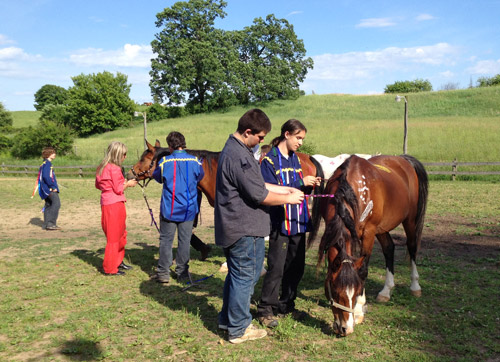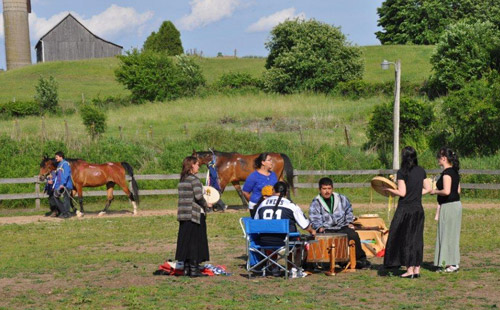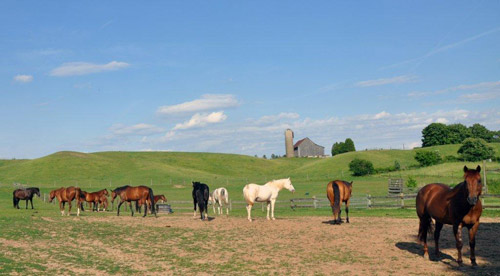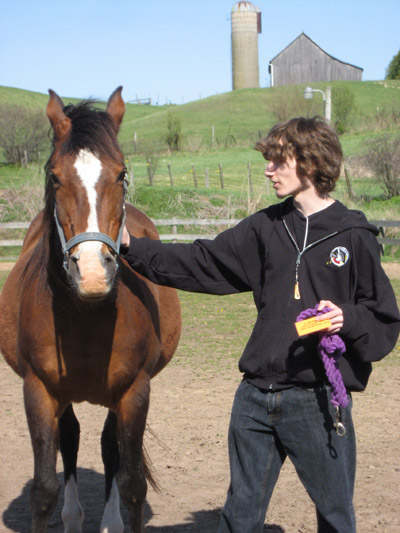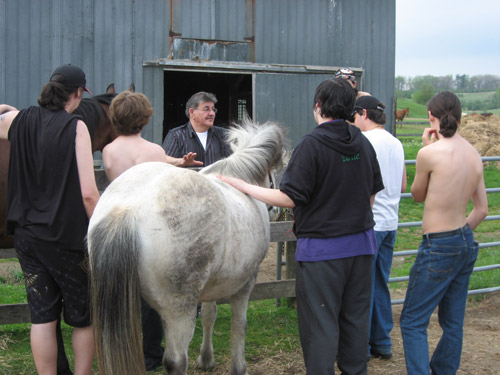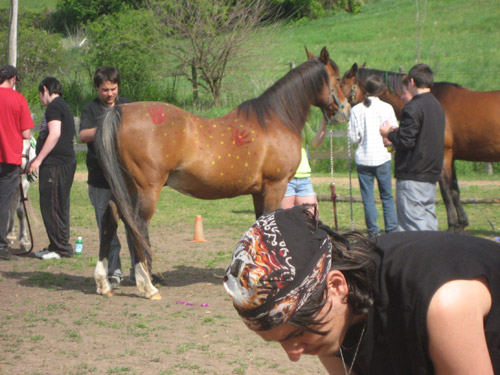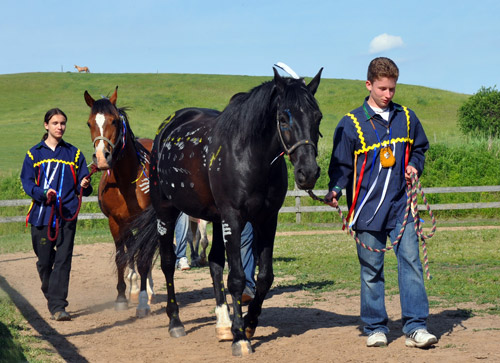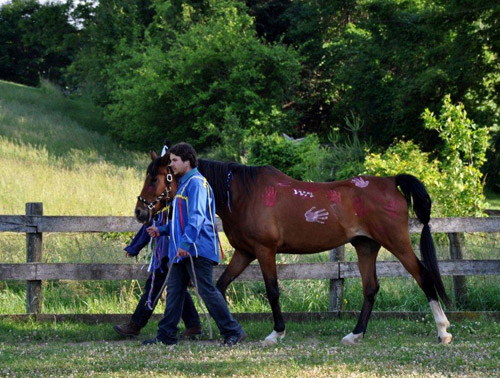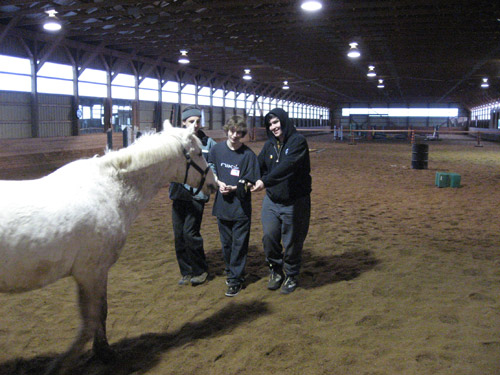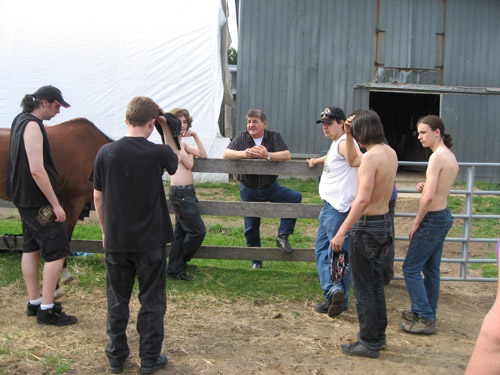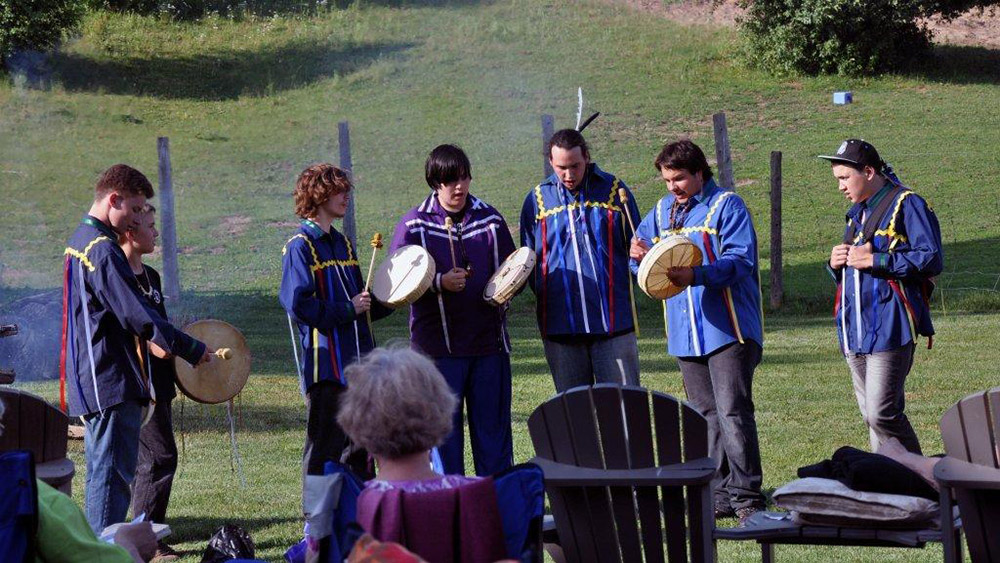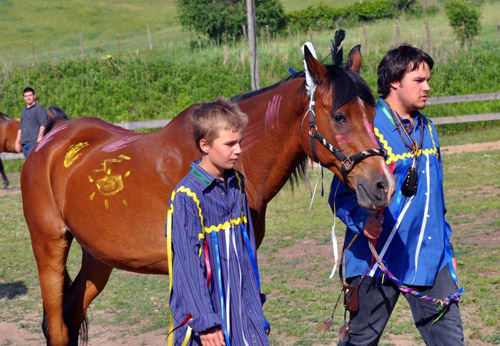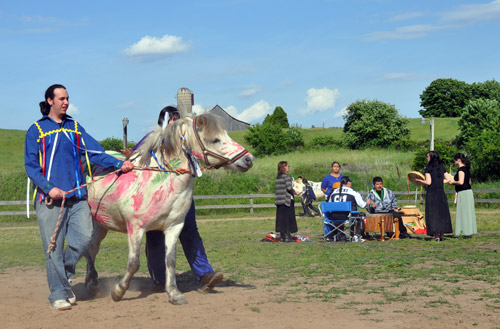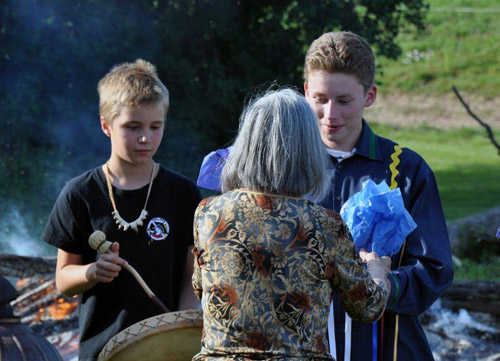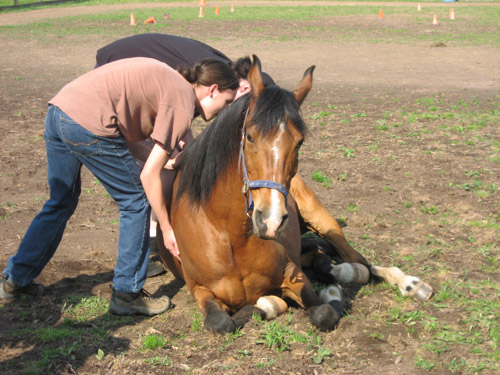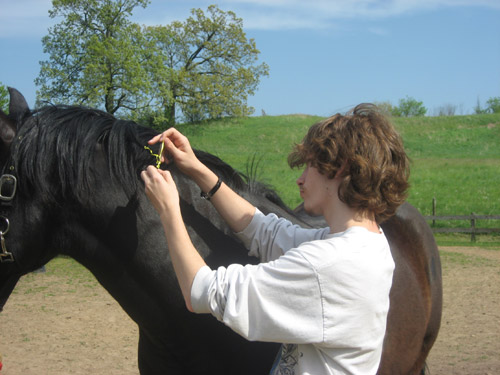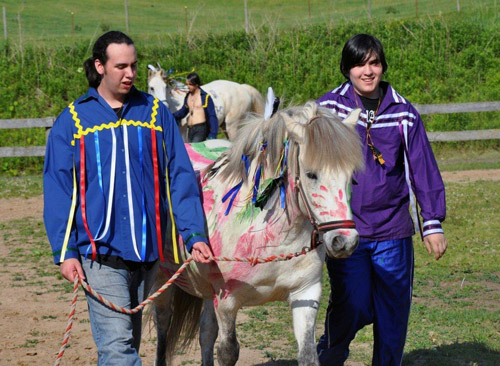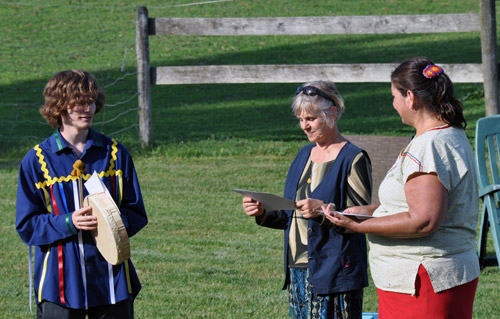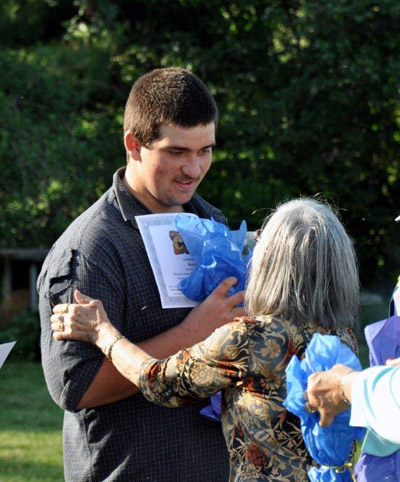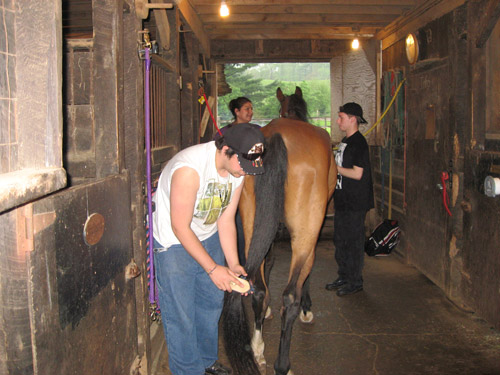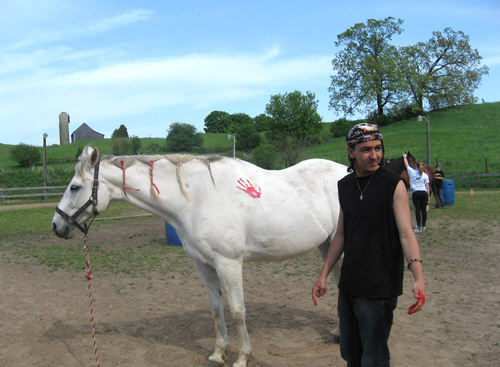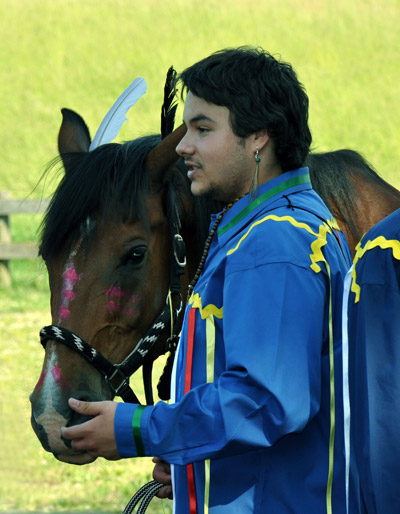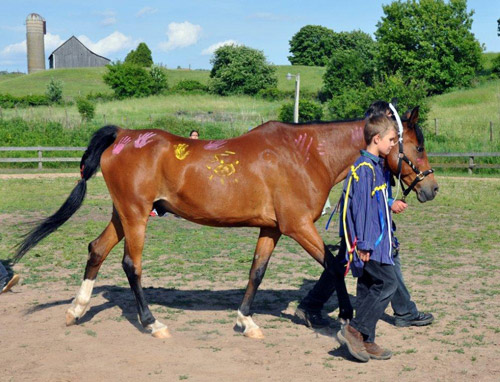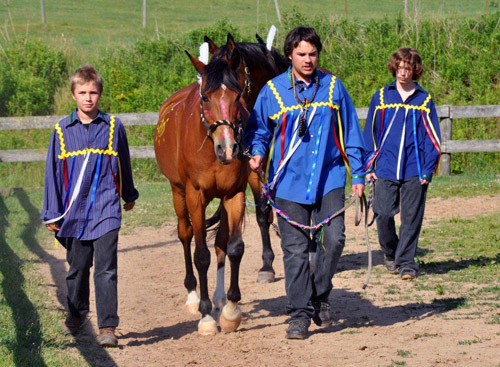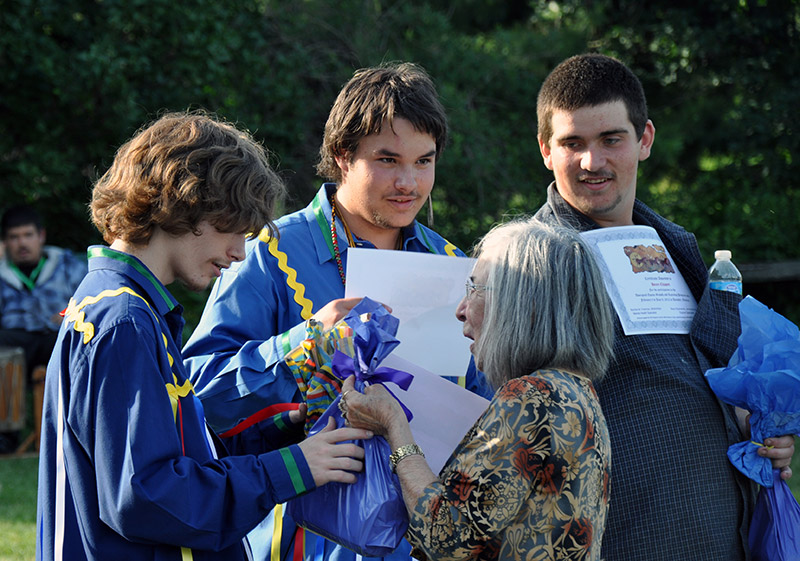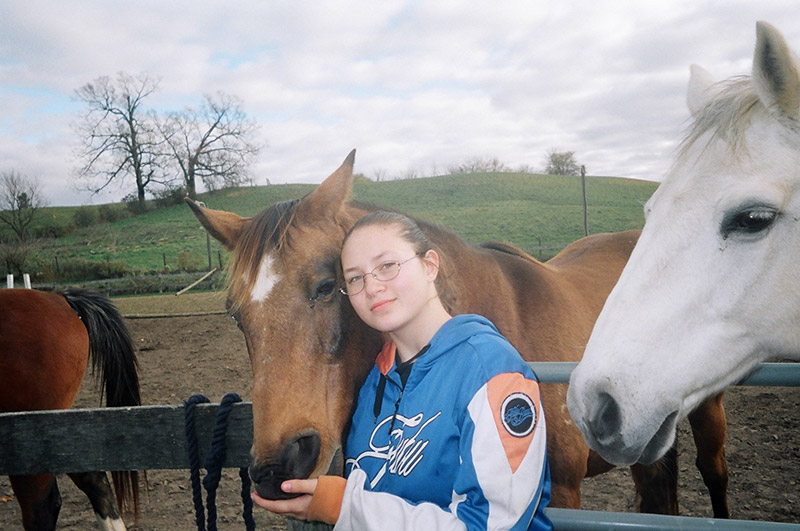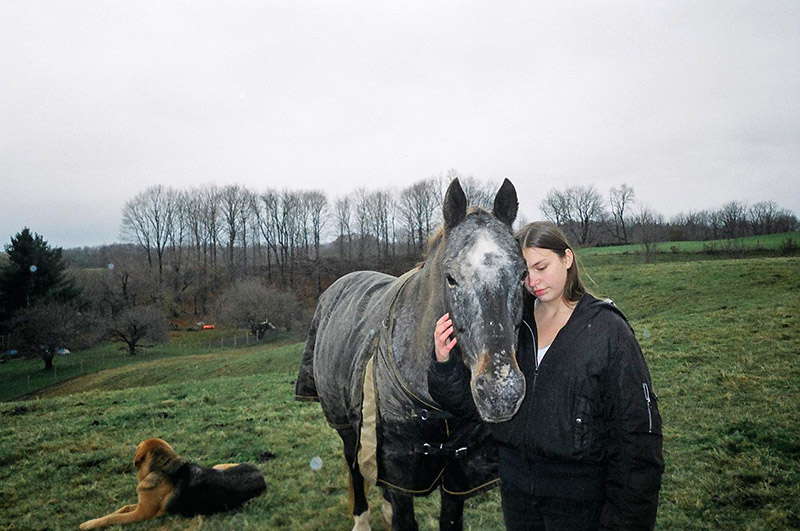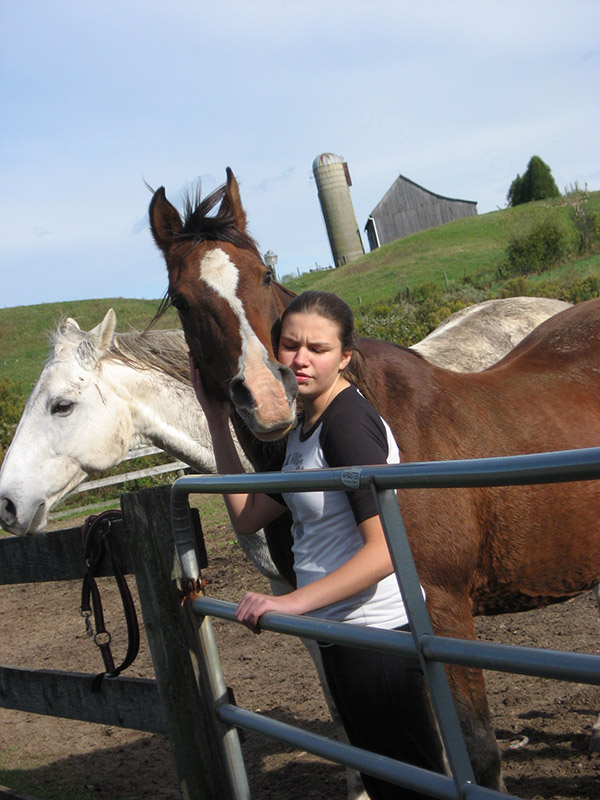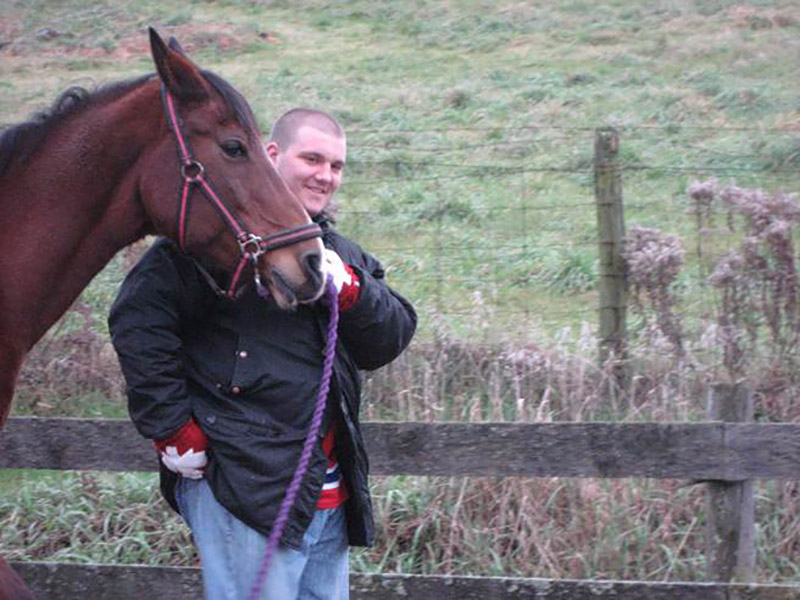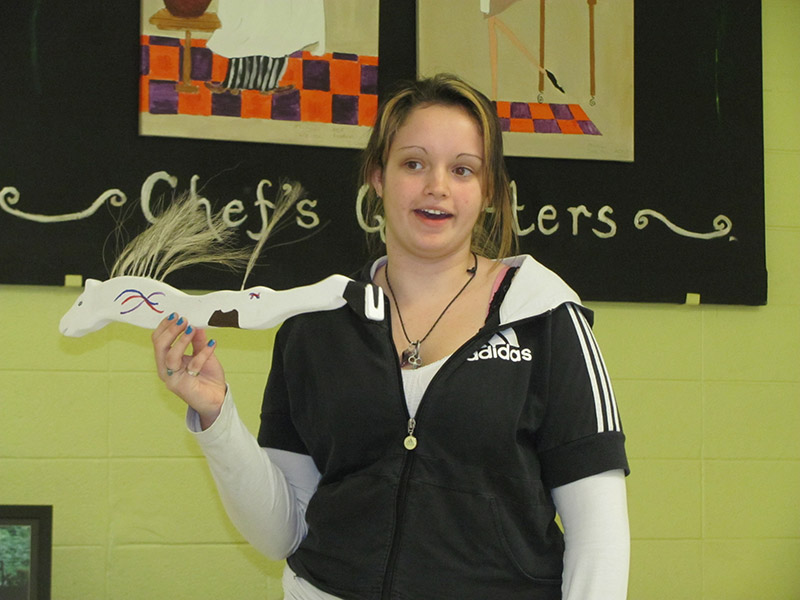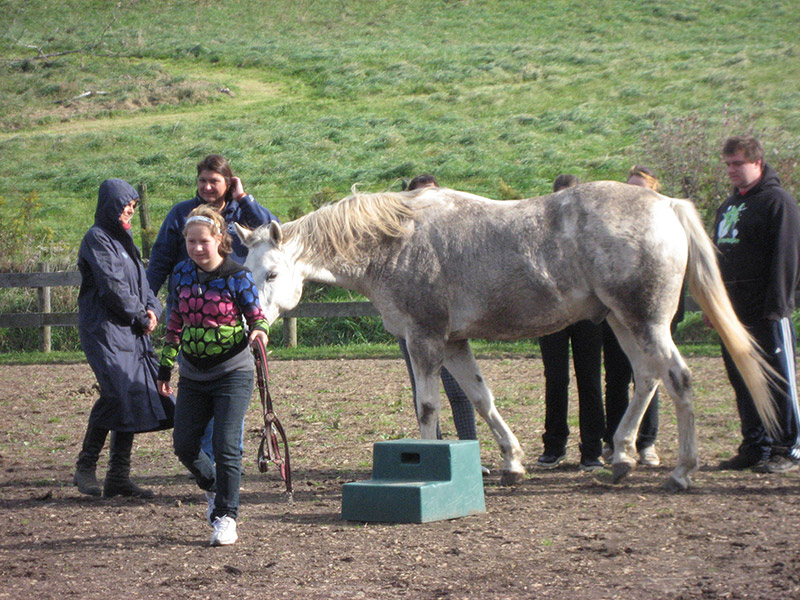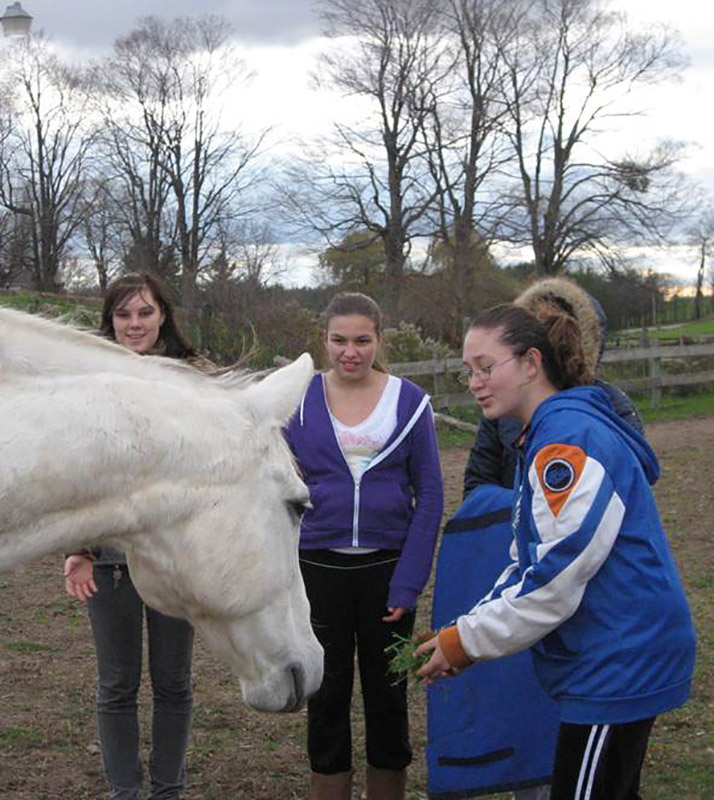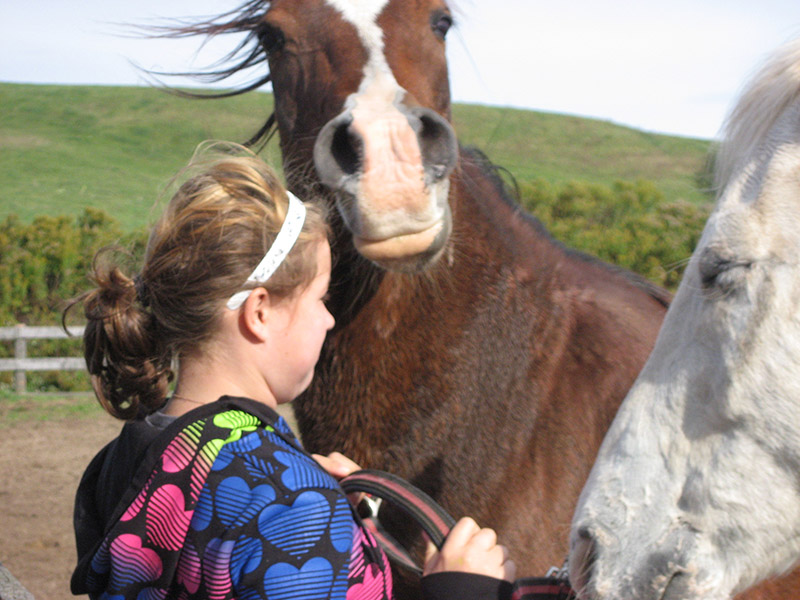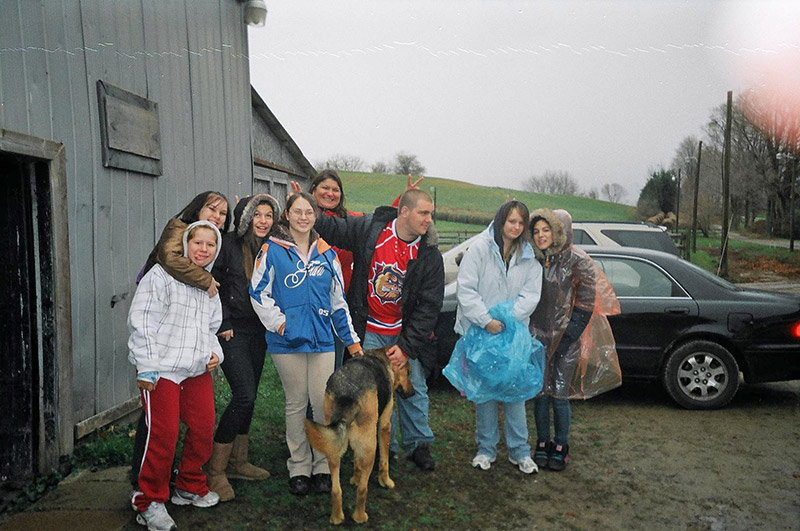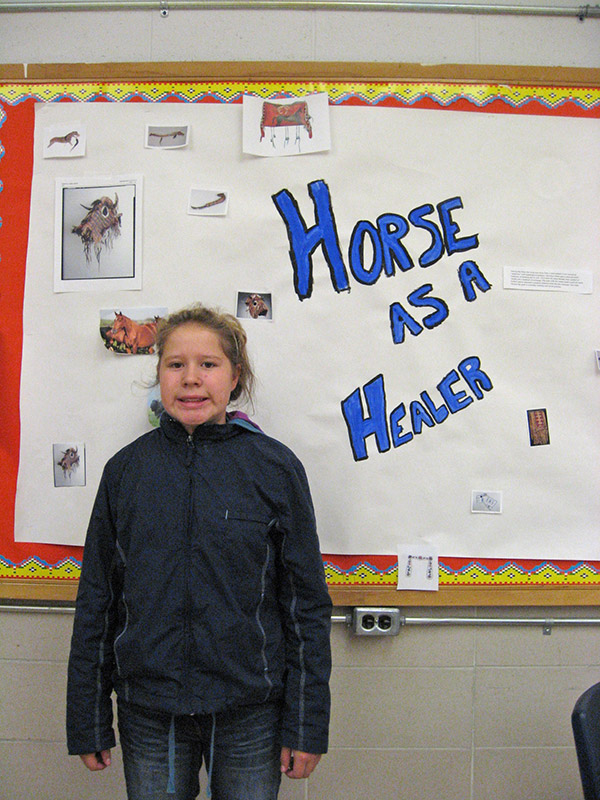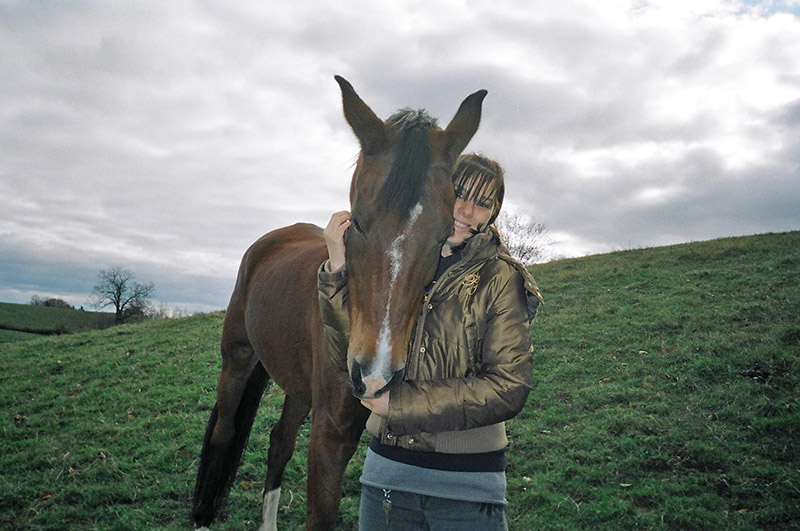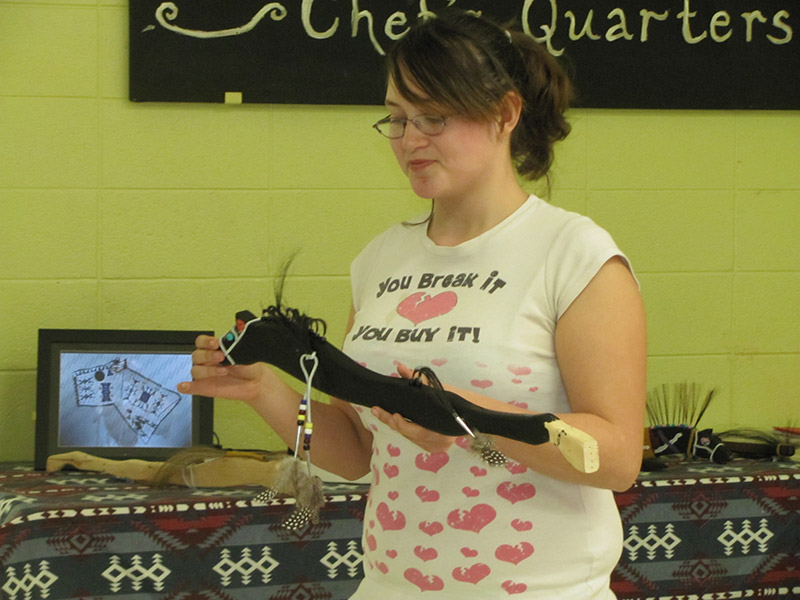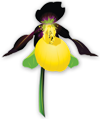 Overview
Overview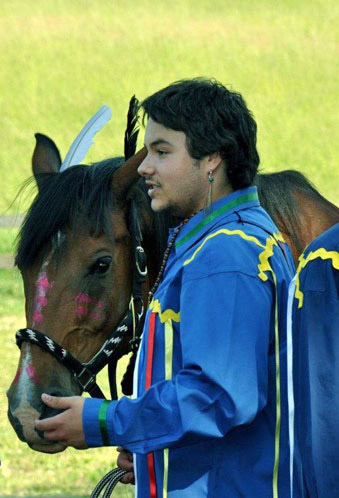
As Aboriginal people, we believe that horse is a gift from that "great mystery." Cherished companion, emotional mirror, and willing partner; we believe such a being is central in building trust between youth and mentors. We look to the horse nation to guide us in our work - to teach how Aboriginal cultures worked and still work with horse spirit.
For each of our organizers and teachers, horses hold personal and historical meaning. We know old stories of how horses came to walk with us. Our stories include visions and long journeys, mountains and mystical beings. It is this knowledge and experience we share with students; a program combining Indigenous history, spirituality, land-based teachings with leading edge research.
This very successful program indigenizes education and offers practicality for students. We introduce youth to living creatures who will not judge them, but teach them experientially - each student gaining something different and personally meaningful from their experience.
Under the guidance of Anishinaabe and Cree Elders, while praying for a horse dance song of their very own, students drummed and sang, feasted and showed thanks for all they had been gifted by Creator, their community and the horses who taught them.
For each of our organizers and teachers, horses hold personal and historical meaning. We know old stories of how horses came to walk with us. Our stories include visions and long journeys, mountains and mystical beings. It is this knowledge and experience we share with students; a program combining Indigenous history, spirituality, land-based teachings with leading edge research.
This very successful program indigenizes education and offers practicality for students. We introduce youth to living creatures who will not judge them, but teach them experientially - each student gaining something different and personally meaningful from their experience.
Under the guidance of Anishinaabe and Cree Elders, while praying for a horse dance song of their very own, students drummed and sang, feasted and showed thanks for all they had been gifted by Creator, their community and the horses who taught them.
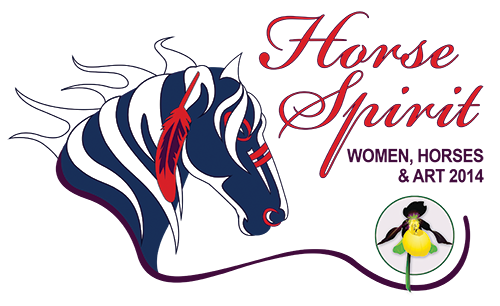 2014: WOMEN, HORSES & ART
2014: WOMEN, HORSES & ART2014 welcomed a new program - Women, Horses & Art with support from Heritage Canada, Aboriginal women and their daughters experienced Equine Assisted Learning in personal development with this experience expressed through the creation of an original artistic art form by each participant.
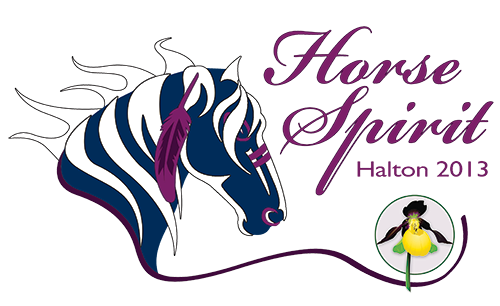 2013: HORSE SPIRIT HALTON
2013: HORSE SPIRIT HALTONStudents in the Halton Horses program worked with both Percherons and miniature horses in their equine assisted learning classes. The program was sponsored by Halton Regional Police Service in Milton and coordinated by the Métis Women's Circle.
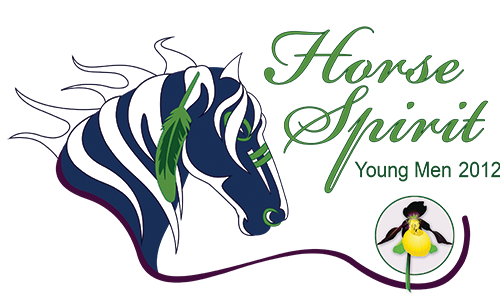 2012: HORSE SPIRIT & YOUNG MEN
2012: HORSE SPIRIT & YOUNG MENDuring the 2012/13 winter/spring semester at Sir John A Macdonald High School, the Métis Women's Circle offered young Aboriginal men the opportunity to earn high school credits through experiencing equine assisted learning.
Students were made familiar with the historical relationship between Aboriginals and horses. The spirit of the horse was experienced in a country setting under the supervision of a certified equine assisted learning instructor. Students worked with horses both individually and in small group work where they learned acceptance and respect, teamwork, and handling skills.
Exercises were designed to teach students those skills to apply in personal situations addressing self-esteem, counter bullying techniques, peer pressure, and dealing with anger. Aboriginal culture carriers augmented the program by introducing land teachings and their personal working experiences centered on horse culture.
Our Horse Social - Finale of The Equine Assisted Learning Program
To cap off the Equine Assisted Learning Program, we offered an an evening of fun and information for Nyaweh students and their family & friends, included showing the results of Equine Assisted Learning workshops presented by Aboriginal students, "The Unity Ride", a spiritual journey for Aboriginal youth presented by Bonnie Freeman, EAL instructor, Aboriginal Social Work, McMaster University, a traditional giveaway and a thank you to the horses.
Students were made familiar with the historical relationship between Aboriginals and horses. The spirit of the horse was experienced in a country setting under the supervision of a certified equine assisted learning instructor. Students worked with horses both individually and in small group work where they learned acceptance and respect, teamwork, and handling skills.
Exercises were designed to teach students those skills to apply in personal situations addressing self-esteem, counter bullying techniques, peer pressure, and dealing with anger. Aboriginal culture carriers augmented the program by introducing land teachings and their personal working experiences centered on horse culture.
Our Horse Social - Finale of The Equine Assisted Learning Program
To cap off the Equine Assisted Learning Program, we offered an an evening of fun and information for Nyaweh students and their family & friends, included showing the results of Equine Assisted Learning workshops presented by Aboriginal students, "The Unity Ride", a spiritual journey for Aboriginal youth presented by Bonnie Freeman, EAL instructor, Aboriginal Social Work, McMaster University, a traditional giveaway and a thank you to the horses.
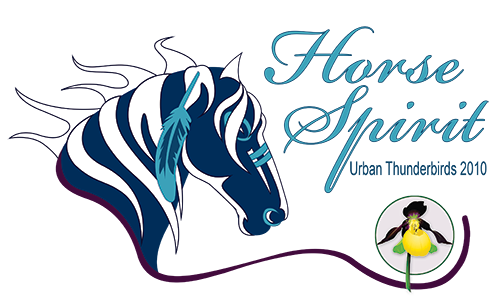 2010: URBAN THUNDERBIRDS - EQUINE ASSISTED LEARNING
2010: URBAN THUNDERBIRDS - EQUINE ASSISTED LEARNING"In Western Cree and other First Nations cultures, the horse is revered as part of the circle of creation... It possesses an intrinsic spiritual value." Our newest venture is the introduction of equine assisted learning to the Aboriginal students. Through a certified Aboriginal trainer in EAL, students worked with horses toward achievement in: Self Reflection, Goal Setting and Maintaining, Boundary Setting and Maintaining, Communication and Relationships. This learning style allowed students to acquire land-based teachings. A program of this nature is very important to young Aboriginal men. Elders worked with the youth to demonstrate "rites of passage" and explain traditional and contemporary roles and responsibilities of men.
Top of page


